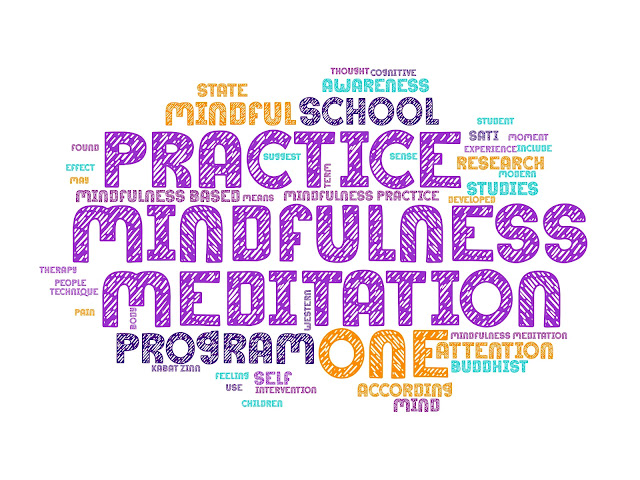Wellness is a term that has been gaining traction in recent years as people become more aware of the importance of taking care of their overall health. From physical fitness to mental health, wellness encompasses a broad range of practices and habits that promote a healthier lifestyle. In this article, we'll dive deeper into what wellness is all about and why it's so important for our health and wellbeing.
What is Wellness?
Wellness is a multidimensional concept that refers to the state of being in good physical, mental, and emotional health. It involves taking care of oneself in a holistic way, which means paying attention to all aspects of our lives that contribute to our overall wellbeing. This includes things like nutrition, exercise, stress management, sleep, and social connections.
Why is Wellness Important?
Wellness is important because it affects every aspect of our lives. When we prioritize our health and wellbeing, we are better equipped to handle the challenges and stresses that come our way. We are also able to enjoy life more fully and have a greater sense of purpose and meaning.
In addition to the benefits to our personal lives, wellness also has broader societal implications. When individuals are healthy and thriving, they are more productive, engaged, and able to contribute to their communities. This can lead to a more vibrant and prosperous society overall.
How to Achieve Wellness
Achieving wellness is a lifelong journey that requires ongoing effort and commitment. There are many different approaches to wellness, but some key strategies include:
Exercise regularly: Exercise is essential for maintaining good physical health, reducing stress, and improving mood.
Eat a healthy diet: Eating a balanced and nutritious diet is important for fueling our bodies and preventing chronic diseases.
Manage stress: Chronic stress can have negative effects on our physical and mental health, so it's important to find ways to manage stress effectively.
Get enough sleep: Sleep is essential for our overall health and wellbeing, so it's important to prioritize getting enough restful sleep each night.
Build social connections: Having strong social connections is important for our mental and emotional health, so it's important to prioritize building and maintaining relationships with others.
Wellness is a vital component of a healthy and fulfilling life. By prioritizing our physical, mental, and emotional health, we can improve our overall wellbeing and enjoy life more fully. Whether through exercise, nutrition, stress management, sleep, or social connections, there are many different approaches to achieving wellness. By committing to ongoing efforts to prioritize our health and wellbeing, we can live happier, healthier, and more fulfilling lives.
What are some effective stress management techniques?
Stress is an inevitable part of life, and learning how to manage it effectively is crucial for our overall wellbeing. Here are some effective stress management techniques that can help you cope with stress and improve your mental and physical health:
Exercise: Regular physical activity is one of the best ways to manage stress. Exercise releases endorphins, which are natural mood-boosters, and helps to relieve tension and anxiety.
Mindfulness meditation: Mindfulness meditation involves focusing your attention on the present moment and accepting your thoughts and feelings without judgment. This practice can help to reduce stress, anxiety, and depression.
Deep breathing: Deep breathing exercises can help to reduce stress and calm the mind. Try taking slow, deep breaths in through your nose and out through your mouth, focusing on your breath as you do so.
Progressive muscle relaxation: This technique involves tensing and relaxing different muscle groups in your body, one at a time. It can help to release tension and promote relaxation.
Get enough sleep: Getting enough restful sleep is essential for managing stress. Aim for seven to eight hours of sleep each night, and establish a relaxing bedtime routine to help you wind down before sleep.
Connect with others: Social support is important for managing stress. Reach out to friends or family members when you're feeling stressed, or consider joining a support group.
Time management: Poor time management can lead to stress, so it's important to prioritize your tasks and activities and create a schedule that works for you.
Practice self-care: Taking care of yourself is essential for managing stress. Make time for activities that you enjoy, such as reading, listening to music, or taking a relaxing bath.
There are many effective stress management techniques that can help you cope with stress and improve your overall wellbeing. Experiment with different techniques to find what works best for you, and make stress management a regular part of your self-care routine.
Can you recommend any apps or websites that can help me practice mindfulness meditation?
Yes, there are several apps and websites available that can help you practice mindfulness meditation. Here are some of the most popular ones:
Headspace: Headspace is a popular app that offers guided meditations, mindfulness exercises, and sleep sounds to help you reduce stress and improve your focus and productivity.
Calm: Calm is another popular app that offers guided meditations, soothing sounds, and bedtime stories to help you relax and sleep better.
Insight Timer: Insight Timer is a free meditation app that features thousands of guided meditations, music tracks, and talks from top meditation teachers around the world.
Buddhify: Buddhify is a meditation app that offers guided meditations tailored to different activities, such as walking, commuting, and working.
Stop, Breathe & Think: Stop, Breathe & Think is a free meditation app that offers customized meditation recommendations based on your current emotional state.
Mindful.org: Mindful.org is a website that offers a variety of mindfulness resources, including guided meditations, articles, and online courses.
UCLA Mindful Awareness Research Center: The UCLA Mindful Awareness Research Center offers free guided meditations and mindfulness exercises, as well as online courses and workshops.
There are many apps and websites available to help you practice mindfulness meditation. Try out a few different options to find the one that works best for you and make mindfulness meditation a regular part of your self-care routine.





.jpg)



0 Comments